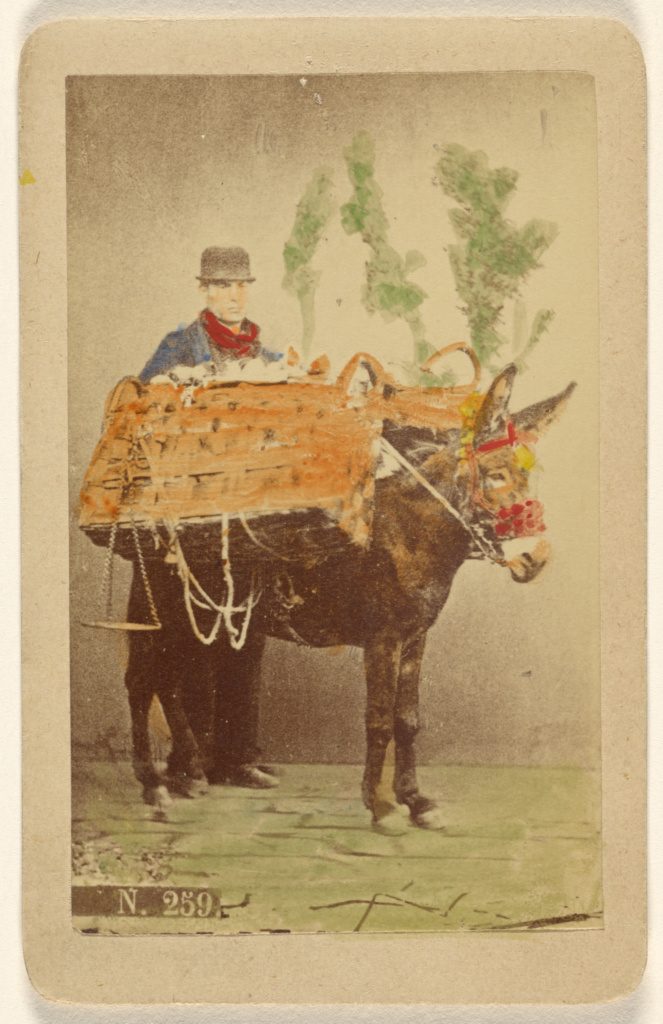Monday, November 4th, 2019...8:55 amChris Francese
Claudian on Mules (De Mulabus Gallicis)

Unidentified man with mule carrying baskets of food. Italy, 1870s. Source: J. Paul Getty Museum
Claudian (ca. 370-ca.404 AD) is best known for his political poetry (he was associated with the court of the Roman emperor Honorius at Milan). But his miscellaneous carmina minora include a fascinating variety of shorter poems, such as a description of a marble chariot (CM 7), a sepulchral epigram on a beautiful woman (11), an invective against a poet with gout (13), and this poem on some marvelous mules.
Aspice morigeras Rhodani torrentis alumnas
imperio nexas imperioque uagas,
dissona quam uarios flectant ad murmura cursus
et certas adeant uoce regente uias.
quamuis quaeque sibi nullis discurrat habenis
et pateant duro libera colla iugo,
ceu constricta tamen seruit patiens que laborum
barbaricos docili concipit aure sonos.
absentis longinqua ualent praecepta magistri
frenorum que uicem lingua uirilis agit.
haec procul angustat sparsas spargit que coactas;
haec sistit rapidas, haec properare facit.
laeua iubet? laeuo deducunt limite gressum.
mutauit strepitum? dexteriora petunt.
nec uinclis famulae nec libertate feroces,
exutae laqueis, sub dicione tamen.
incessu que pares et fuluis pellibus hirtae
esseda concordes multisonora trahunt.
miraris si uoce feras pacauerit Orpheus,
cum pronas pecudes Gallica uerba regant?
Here is a translation by Chris Francese made for this episode.
Behold the compliant daughters of the rushing Rhone, interwoven by command and made to wander by command, see how they turn in various directions in response to various spoken commands and how the ruling voice directs them down fixed paths. Although each on goes its way without reins, and its neck is free from the harsh yoke, still it serves as if bound and works hard, listening to barbaric sounds with a docile ear. The far-off instructions of their absent master have their effect, and a man’s tongue serves as bridle and harness: this collects them when scattered, and scatters them when collected; this stops them as they run, and this makes them pick up speed. Does he order left? They step to the left. Has he changed his cry? They head to the right. Unchained slaves, but not defiant in their freedom, they have shaken off the halter but remain under control. With synchronized gate, their shaggy coats tawny, they harmoniously pull the noisy carts. Are you surprised that Orpheus tamed wild beasts with his voice, when Gallic words rule downward-looking beasts?
Podcast: Play in new window | Download
Subscribe: Apple Podcasts | RSS

Leave a Reply